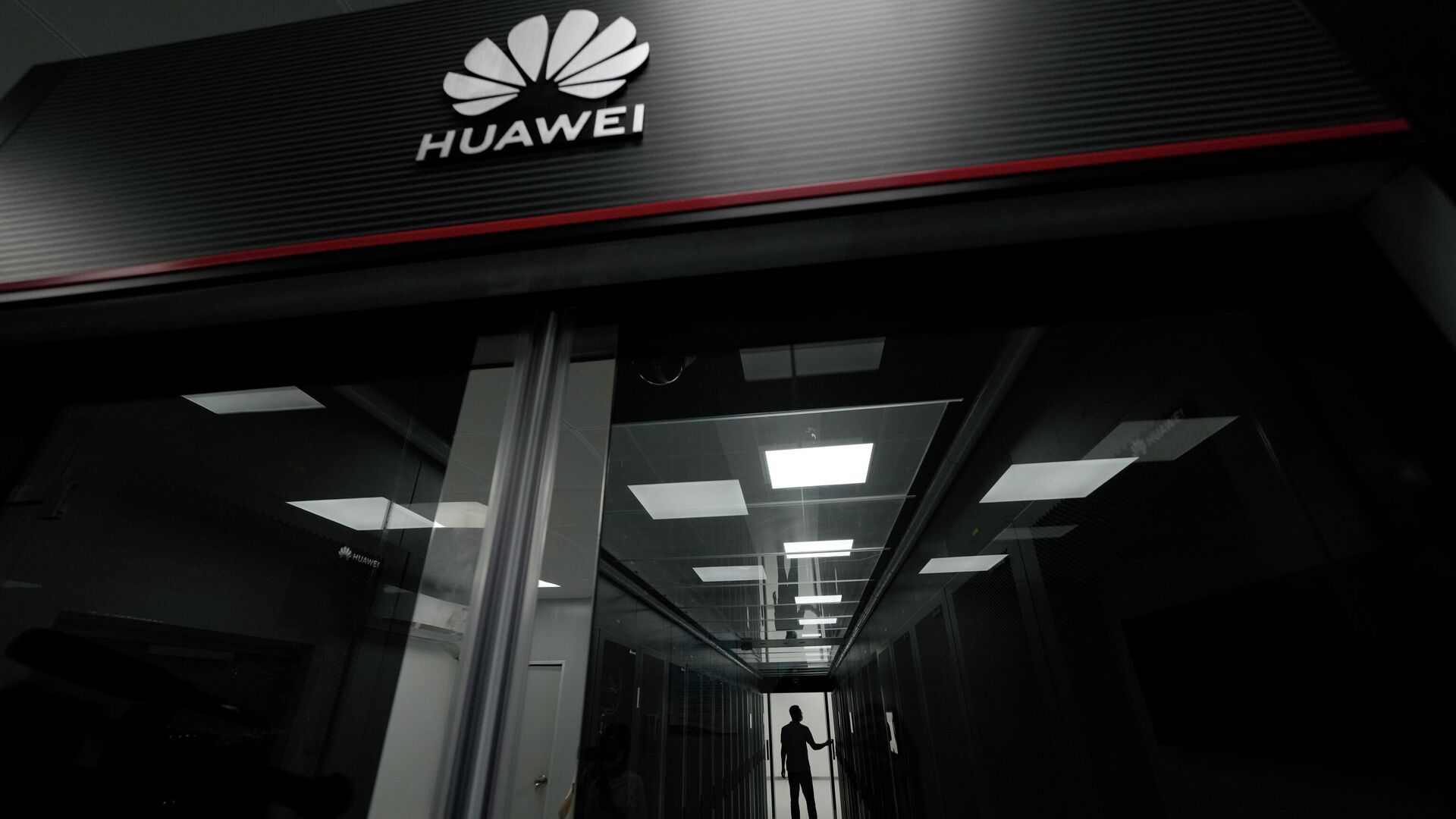https://sputnikglobe.com/20220427/huawei-spent-22-billion-on-research-in-2021-as-company-resists-us-sanctions---report-1095087131.html
Huawei Spent $22 Billion on Research in 2021 As Company Resists US Sanctions - Report
Huawei Spent $22 Billion on Research in 2021 As Company Resists US Sanctions - Report
Sputnik International
In 2019, the US authorities designated Huawei as a company that poses a national security threat and imposed sanctions restricting access to US technology... 27.04.2022, Sputnik International
2022-04-27T02:45+0000
2022-04-27T02:45+0000
2022-04-27T02:45+0000
asia
huawei
scientific research
tech giants
china
sanctions
https://cdn1.img.sputnikglobe.com/img/07e5/0b/12/1090819696_0:152:3072:1880_1920x0_80_0_0_e350248abd9306c9a50c9b636400a157.jpg
One of the biggest Chinese tech giants, Huawei, has almost doubled its research and development budget over the past five years to $22.1 billion in 2021, Bloomberg reported on Tuesday. The figure represents 22.4 percent of its sales last year—nearly double that of Amazon and Alphabet (owner of Google), and more than three times that of Apple.The trend marks Huawei's relentless efforts to develop chips, network equipment, and even smartphones without the use of American technology, unavailable since the 2019 sanctions. The restrictions caused the company's revenue to fall by almost a third last year, increasing the share of Huawei's spending on research.The growth in investment has led to a rapid expansion of the Chinese company's patent portfolio. As of the end of 2021, Huawei held over 110,000 patents, the largest number of patents in the world.According to Bloomberg, Huawei was one of six companies across the world that spent more than $20 billion on research and development last year. This figure rivaled Microsoft and was about $1 billion less than Apple and $2.5 billion less than Meta.According to representatives of Huawei, in 2021 the company had 195 thousand employees, of which 107 thousand (55 percent) were engaged in research and development.In 2019, Huawei was blacklisted by the US Department of Commerce as a company that poses a threat to national security and was no longer allowed to import American technology. Huawei also lost access to Google services, which impedes the production of full-fledged Android smartphones.The sanctions dealt a devastating blow to Huawei's smartphone business and led to a ban on its 5G equipment in many regions. Huawei’s unit that produces consumer electronics, including smartphones, has been most affected by the sanctions, as its revenue fell by 50 percent year on year.According to Canalys, a global technology market analyst firm, Huawei shipped a total of 32 million smartphones in Q4 2020, 43 percent down from a year earlier, dropping out of the top five global smartphone vendors for the first time in six years and giving way to its Chinese competitors, Oppo and Vivo. Huawei's telecommunications business suffered much less, having decreased by 7 percent.At the end of 2021, Huawei's total revenue amounted to $99.9 billion, which was 28.5 percent lower compared to 2020. The company reported its first year-on-year decline in revenue for the first time since 2002. On the other hand, its total net income for the reporting period increased by 75.5 percent, reaching $17.4 billion.Meanwhile, the tech giant has taken a number of measures to deal with the sanctions pressure, including the sale of Honor, a brand of popular smartphones under Huawei, and spinning off the x86-compatible server business into a separate consortium.As part of its “anti-crisis” strategy, Huawei was also said to cooperate with Chinese state-owned China Postal and Telecommunications Appliances (PTAC), the country's leading cell phone distributor, to release smartphones under the Hi Nova brand in roundabout ways.
https://sputnikglobe.com/20220311/china-faced-cyberattack-from-us-soil-to-target-russia-chinese-state-media-reports-1093770502.html
https://sputnikglobe.com/20220312/ex-us-attorney-general-william-barr-calls-china-biggest-threat-to-america-1093811154.html
china
Sputnik International
feedback@sputniknews.com
+74956456601
MIA „Rossiya Segodnya“
2022
News
en_EN
Sputnik International
feedback@sputniknews.com
+74956456601
MIA „Rossiya Segodnya“
Sputnik International
feedback@sputniknews.com
+74956456601
MIA „Rossiya Segodnya“
huawei, scientific research, tech giants, china, sanctions
huawei, scientific research, tech giants, china, sanctions
Huawei Spent $22 Billion on Research in 2021 As Company Resists US Sanctions - Report
In 2019, the US authorities designated Huawei as a company that poses a national security threat and imposed sanctions restricting access to US technology, including chips and software. Since then, the company, faced with declining sales, has focused on research and reorganization to adapt to the new conditions.
One of the biggest Chinese tech giants, Huawei, has almost doubled its research and development budget over the past five years to $22.1 billion in 2021,
Bloomberg reported on Tuesday. The figure represents 22.4 percent of its sales last year—nearly double that of Amazon and Alphabet (owner of Google), and more than three times that of Apple.
The trend marks Huawei's relentless efforts to develop chips, network equipment, and even smartphones without the use of American technology, unavailable since the 2019 sanctions. The restrictions caused the company's revenue to fall by almost a third last year, increasing the share of Huawei's spending on research.
The growth in investment has led to a rapid expansion of the Chinese company's patent portfolio. As of the end of 2021, Huawei held over 110,000 patents, the largest number of patents in the world.
According to Bloomberg, Huawei was one of six companies across the world that spent more than $20 billion on research and development last year. This figure rivaled Microsoft and was about $1 billion less than Apple and $2.5 billion less than Meta.
According to representatives of Huawei, in 2021 the company had 195 thousand employees, of which 107 thousand (55 percent) were engaged in research and development.
In 2019, Huawei was blacklisted by the US Department of Commerce as a company that poses a threat to national security and was no longer allowed to import American technology. Huawei also lost access to Google services, which impedes the production of full-fledged Android smartphones.
The sanctions dealt a devastating blow to Huawei's smartphone business and led to a
ban on its 5G equipment in many regions. Huawei’s unit that produces consumer electronics, including smartphones, has been most affected by the sanctions, as its revenue fell by 50 percent year on year.
According to Canalys, a global technology market analyst firm, Huawei shipped a total of 32 million smartphones in Q4 2020, 43 percent down from a year earlier, dropping out of the top five global smartphone vendors for the first time in six years and giving way to its Chinese competitors, Oppo and Vivo. Huawei's telecommunications business suffered much less, having decreased by 7 percent.
At the end of 2021, Huawei's total revenue amounted to $99.9 billion, which
was 28.5 percent lower compared to 2020. The company reported its first year-on-year decline in revenue for the first time since 2002. On the other hand, its total net income for the reporting period increased by 75.5 percent, reaching $17.4 billion.
Meanwhile, the tech giant has taken a number of measures to deal with the sanctions pressure, including the sale of Honor, a brand of popular smartphones under Huawei, and spinning off the x86-compatible server business into a separate consortium.
As part of its “anti-crisis” strategy, Huawei was also said to cooperate with Chinese state-owned China Postal and Telecommunications Appliances (PTAC), the country's leading cell phone distributor, to release smartphones under the Hi Nova brand in roundabout ways.




